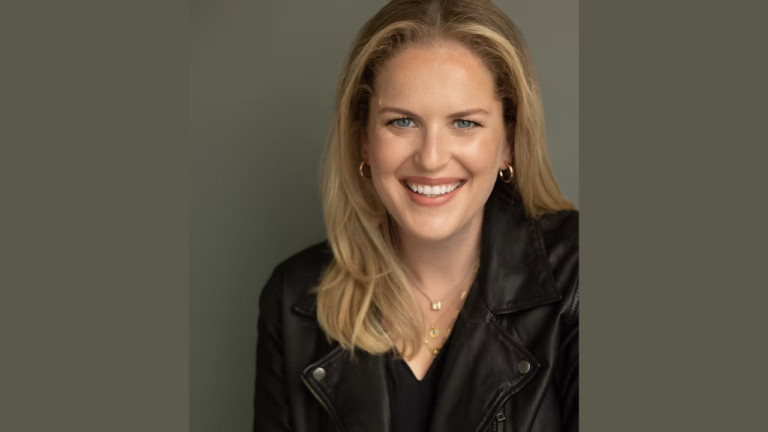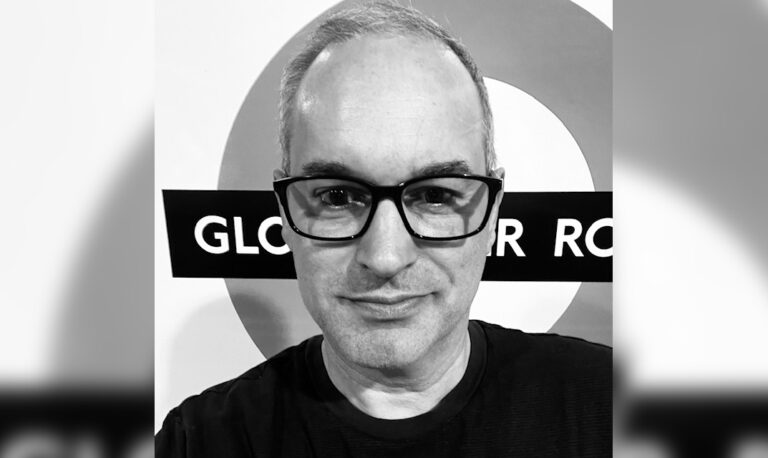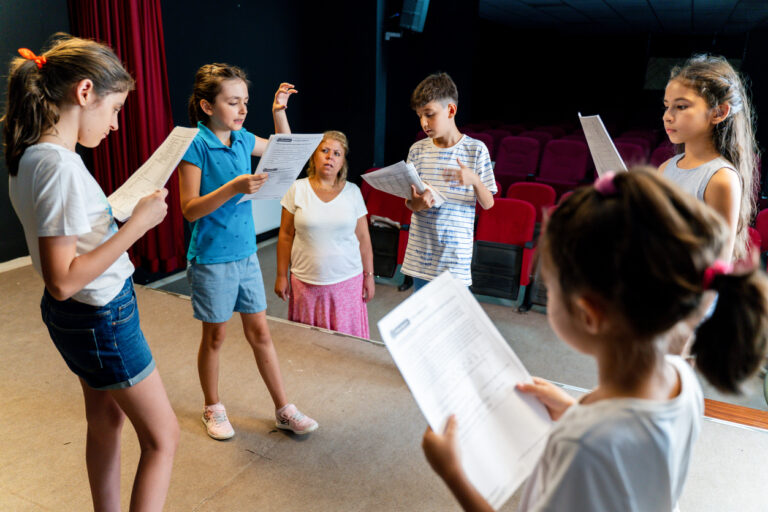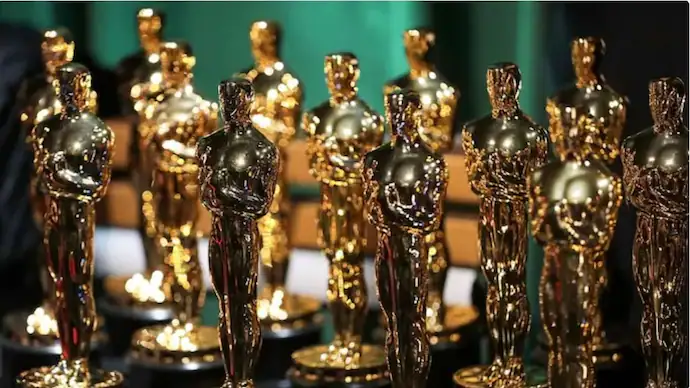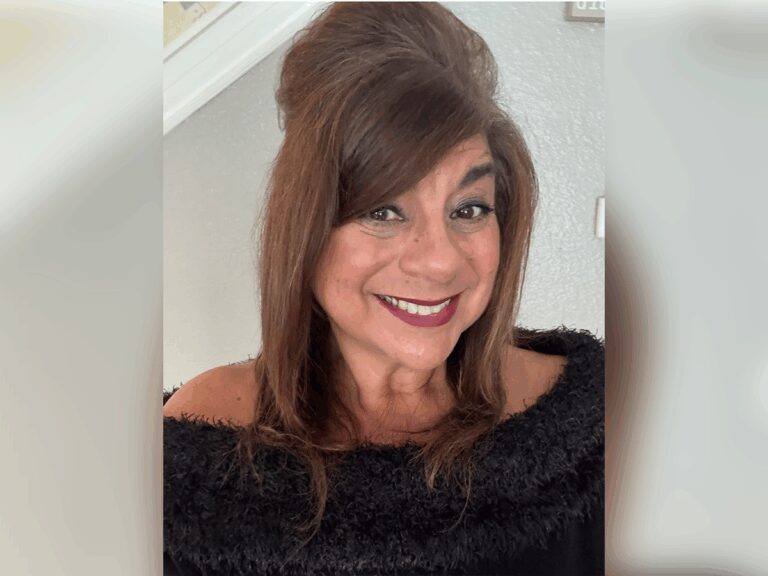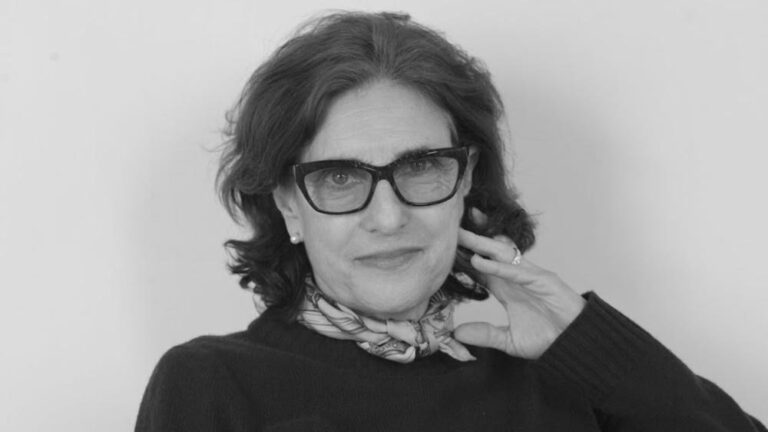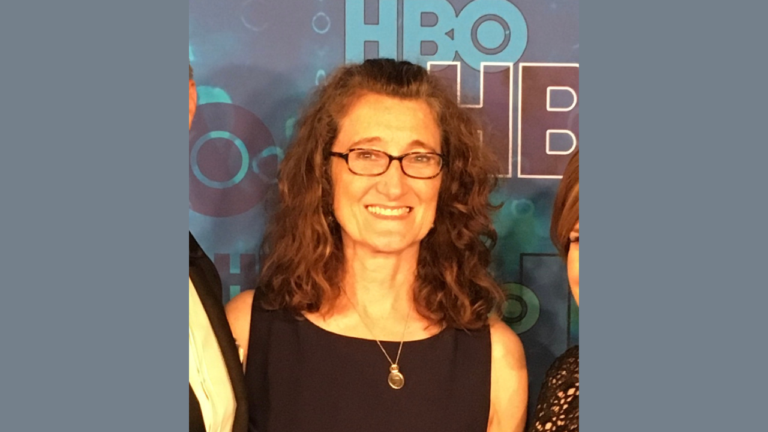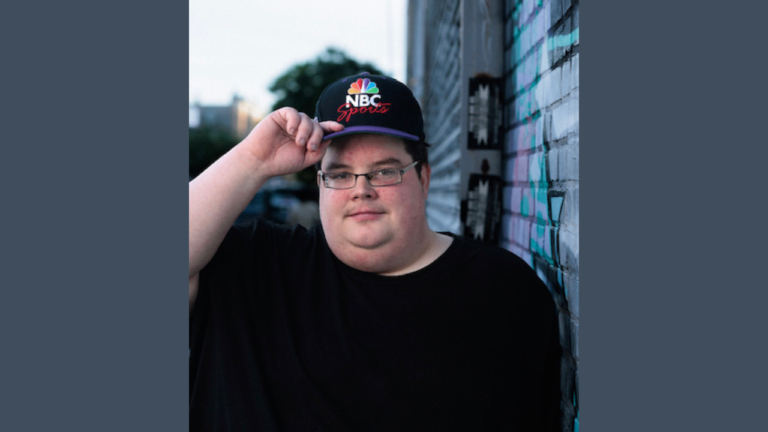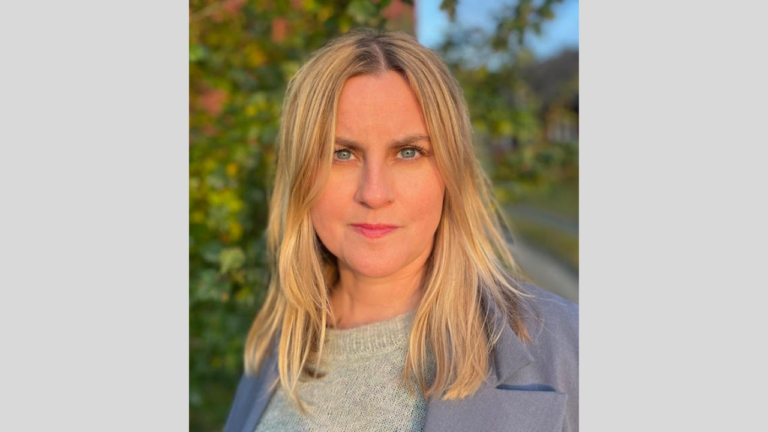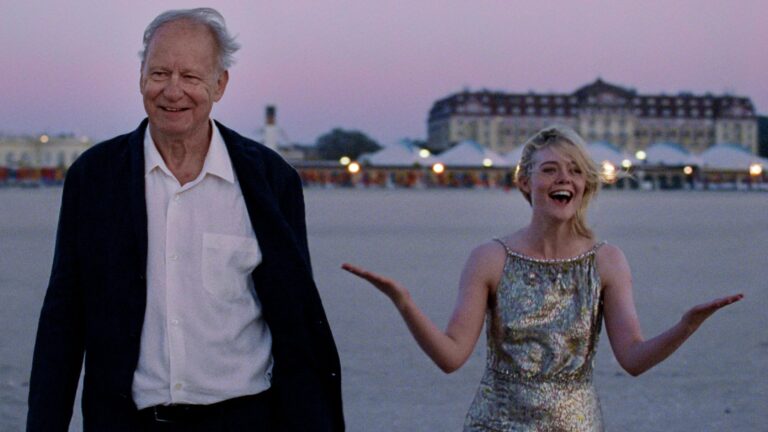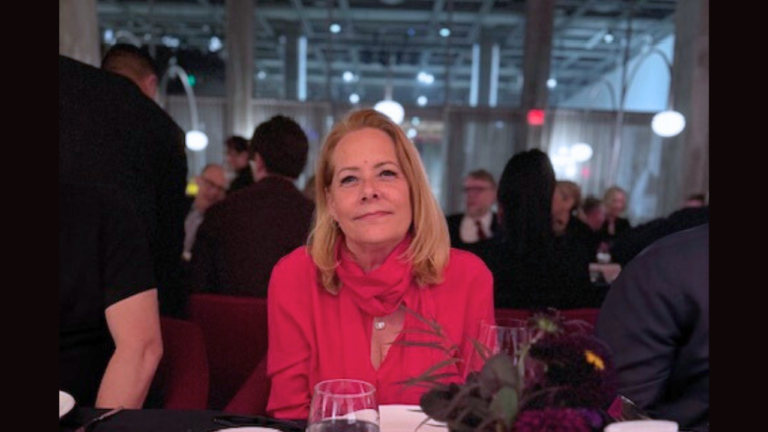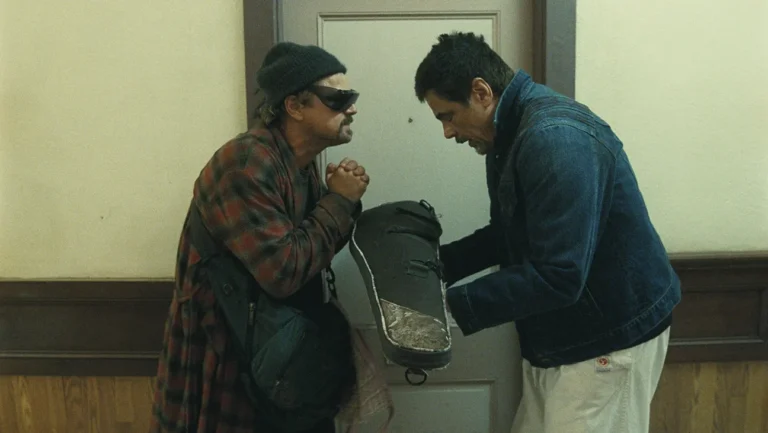Sharon Bialy is a casting legend. There’s no denying it, it’s just a fact.
The list of her shows is the kind of thing you dream about: Breaking Bad, Better Call Saul, The Walking Dead, The Handmaid’s Tale, Barry, The Righteous Gemstones, Julia, Halt and Catch Fire, Gotham and Picket Fences, just to name a few. She’s also cast plenty of movies, including Mr. Holland’s Opus, Phil Spector and Secret in Their Eyes.
The respect she has from her peers is also clear from her nine Emmy nominations and 37 Artios nods (with one win, for Breaking Bad).
Her latest project is the indie true story, The Senior, which she led alongside Casting Assistant Nicole Bunnell and a host of other casting officials. Starring Michael Chiklis, the film tells the story of Mike Flynt, a 59-year-old man who returns to his college’s football team four decades after he was kicked off the squad.
The film also stars Mary Stuart Masterson and Rob Corddry, and is directed by Rod Lurie. The Senior hits theaters September 19. Bialy spoke to us from her office in LA.
Insights From Sharon Bialy
- Embrace roles that challenge their typecasting, especially comedians exploring dramatic parts, to showcase versatility and open new opportunities.
- Focus on authenticity in auditions by fully embodying the character.
- Build confidence by trusting casting directors who see potential in you.
Tell me about The Senior. How did you come to work on this film?
Well, I’d worked for Rod Lurie before. We actually did the Straw Dogs remake together. He’s called to offer me other things. He’s so loyal, and I adore him. We’ve remained friends, and I think he’s a great human being and a really smart filmmaker. He just called and offered it to me, and I love football movies.
For me, it was like Rudy. There’s even a line in the movie where one of the coaches talks about Chiklis’ character, and he goes, “Oh, he’s a modern-day Rudy.” (Laughs) So that’s how it started. Nobody was attached when I came on.
You came on board to help him get the name he’d need to get the film financed?
Well, the money was there, a blinking green light. They were planning on making the movie, but they wanted their name. Still, it was a lower-budget independent movie. They weren’t gonna pay certain people, but interestingly enough, Chiklis was my partner Sherry Thomas’ and my first choice.
We surprised Rod because he said, “Okay, I think I know who your first choice is on the list.” I said, “No, you don’t.” We both told him Michael Chiklis, and he said, “Wow, I wasn’t expecting that.”
When you think about casting authentically, and to really make a story work, you try to go for the actor who’s really the most right. We just both felt that about Chiklis.
Now I’m curious, who did he think you were going to say?
I won’t say. (Laughs) There were actors who weren’t quite right for it, but had bigger names in the movie world than Michael.
To Rod’s credit, he really said, “No, my casting people are right, Chiklis is the right guy for this part.” He’s the same age, physically really right for it, and if you meet Michael Chiklis personally, he really has a heart.
Once Chiklis was on board and things started rolling, what about the rest of the cast? Let’s start with Mary Stuart Masterson.
I’ve been a big fan for a long time. She has such a naturalism to her and a realness, and no artifice. She feels like a real person. You don’t see the star when you see Mary Stuart on screen — you see the character.
A lot of times, and I don’t want to insult anybody, but you see the movie star, and then you get into the story. For me, with Mary Stuart Masterson, you immediately go into the character, and I thought that was important.
The script actually made the character more than just the wife. You see, she’s really his partner, someone who challenges him in a really beautiful, loving marriage of equals. So you wanted someone who could give it some authenticity.
I can see that, as a casting director, you would want someone without the baggage of stardom for certain roles.
I think that’s true. Look, this is not a Marvel movie. It’s a true story, so you want to dive into the storyline and the characters as quickly as possible, and it’s a lot easier sometimes to do that without anybody you associate with another iconic role. It’s hard for indies to do that because they need their money and guarantees, but I think they did a nice job here of saying, “This will work.”
One of the things I’m intrigued by is the casting of Rob Corddry, who obviously comes from a comedic background, but now he’s here in a dramatic role.
This might have been his first one, but Sherry and I both have a history and a pride in taking comedy actors and putting them in dramatic roles. If you look at Breaking Bad or Better Call Saul, they’re filled with comedians.
What happens is, actors often get typecast as only one thing, and it’s very exciting as a casting director to take them out of that mold and try something else. His performance was so understated that it was beautiful. Honestly, I don’t know why I thought of him. I cast his brother, Nate, a lot, so the Corddry name is always in my head.
There are no comedic actors I can think of off the top of my head who aren’t really good at drama, whereas it’s not always the same vice versa.
I agree with you. I don’t think you can teach funny, but at the same time, maybe because they’re so good at being funny, they know how to play it straight in a way that it seems more effortless.
I think the secret for many comedic actors is just to be there, and if you just say the dialogue and don’t put a lot into it, if the dialogue is good, it’ll work. I think the fun part for me in casting the movie was looking for the young football players.
That was actually my next question.
It was really fun. We definitely wanted diversity, and we needed real football players. We really leaned into trying to find African-American actors. Everybody read. Corey Knight, who plays Jeremy Cartwright, and Terayle Hill, who plays the rapper Jamal Johnson, sparked.
Terayle also wrote one of the songs with Rod at the end of the movie. Rod brilliantly took one of his talents and inserted it into the character, and Corey’s just so charming and effervescent that it popped right off the screen, even in our audition.
I would think that must be one of the best parts of your job. When you have the freedom to pick the best actors and you’re not beholden to anyone or anything.
It is one of the most rewarding things, because you really change people’s lives. Not because of money or fame, but because of the confidence you give them when they get that part, and something in an actor, a light turns on inside of them once they get a role. That’s why they keep working, you know?
There are times when you believe in the actor more than they believe in themselves, and when you can do that and encourage that, I think it’s really rewarding.
When you finish a job like this, do you allow yourself to appreciate a job well done? Or is it the kind of thing where it’s, “Okay, onto the next one?”
That’s a really good question. I think that we need to take the time to celebrate more, and we don’t because we’re still working. I’m grateful that we have work, but we don’t seem to have the time to celebrate. I think we celebrate after we see the finished project. You go to the premiere of the show or the movie that you’ve cast, and I think that’s when you can sit back and go, “Wow. Damn, that really worked.”
I love working with actors. My favorite thing about my job is auditioning with actors. Not being on the phone with agents and not negotiating. That’s part of our job as well, but I think all of us should take more time to celebrate when a job is well done.
I think there are times you do appreciate it. I still remember that I did a show called The Last Tycoon. At the final table read, it just had so many people, so many guests, and everybody around the room said who they were and what they were playing. I just looked around the room like a proud mother, and when it got to me and I said, “Sharon Bialy, casting director,” everybody started clapping.
I got choked up, tears in my eyes, because it wasn’t just that they appreciated my work. Everybody saw the collection of such talent, and we were the people who brought that table together.
Final Takeaways
Landing meaningful roles isn’t just about having a big name or flashy resume. Sharon Bialy’s approach to casting shows that authenticity, versatility, and confidence are what truly make an actor stand out. Here are a few takeaways for new actors looking to break through and make their mark:
- Be open to roles that stretch your range, especially if it means stepping outside your comfort zone or typecast image.
- Focus on embodying the character fully so casting directors see the role, not the actor’s previous work or fame.
- Trust the process and believe in yourself even when doubt creeps in.
- Seek opportunities where you can bring your unique talents, like music or sports skills, that add authenticity to the role.
- Remember that confidence often comes from being prepared and showing up fully in auditions, not just from experience or status.
You may also like:

